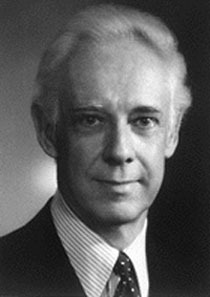A Quote by James Fenimore Cooper
Knowledge is the parent of knowledge. He who possesses most of the information of his age will not quietly submit to neglect its current acquisitions, but will go on improving as long as means and opportunities offer; while he who finds himself ignorant of most things, is only too apt to shrink from a labour which becomes Herculean.
Related Quotes
Each member of society can have only a small fraction of the knowledge possessed by all, and...each is therefore ignorant of most of the facts on which the working of society rests...civilization rests on the fact that we all benefit from knowledge which we do not possess. And one of the ways in which civilization helps us to overcome that limitation on the extent of individual knowledge is by conquering intelligence, not by the acquisition of more knowledge, but by the utilization of knowledge which is and which remains widely dispersed among individuals.
All political theories assume, of course, that most individuals are very ignorant. Those who plead for liberty differ from the rest in that they include among the ignorant themselves as well as the wisest. Compared with the totality of knowledge which is continually utilized in the evolution of a dynamic civilization, the difference between the knowledge that the wisest and that the most ignorant individual can deliberately employ is comparatively insignificant.
...God does not possess a private knowledge of Himself and a separate knowledge of all the creatures in common. The universal Cause, by knowing Itself, can hardly be ignorant of the things which proceed from It and of which It is the source. This, then, is how God knows all things, not by understanding things, but by understanding Himself.
In mysticism, knowledge cannot be separated from a certain way of life which becomes its living manifestation. To acquire mystical knowledge means to undergo a transformation; one could even say that the knowledge is the transformation. Scientific knowledge, on the other hand, can often stay abstract and theoretical. Thus most of today’s physicists do not seem to realize the philosophical, cultural and spiritual implications of their theories.
Ideas, as the raw material from which knowledge is produced, exist in superabundance, but that makes the production of knowledge more difficult rather than easier. Many ideas- probably most- will have to be discarded somewhere in the process of producing authenticated knowledge. Authentication is as important as the raw information itself, and the manner and speed of the authentication process can be crucial.
We find that one of the most rewarding features of being scientists these days ... is the common bond which the search for truth provides to scholars of many tongues and many heritages. In the long run, that spirit will inevitably have a constructive effect on the benefits which man can derive from knowledge of himself and his environment.
Data isn't information. ... Information, unlike data, is useful. While there's a gulf between data and information, there's a wide ocean between information and knowledge. What turns the gears in our brains isn't information, but ideas, inventions, and inspiration. Knowledge-not information-implies understanding. And beyond knowledge lies what we should be seeking: wisdom.
It is not indeed certain, that the most refined caution will find a proper time for bringing a man to the knowledge of his own failing, or the most zealous benevolence reconcile him to that judgment by which they are detected; but he who endeavours only the happiness of him whom he reproves will always have either the satisfaction of obtaining or deserving kindness; if he succeeds, he benefits his friend; and if he fails, he has at least the consciousness that he suffers for only doing well.
Each is liable to panic, which is exactly, the terror of ignorance surrendered to the imagination. Knowledge is the encourager, knowledge that takes fear out of the heart, knowledge and use, which is knowledge in practice. They can conquer who believe they can. It is he who has done the deed once who does not shrink from attempting again.
Any piece of knowledge which the pupil has himself acquired- any problem which he has himself solved, becomes, by virtue of the conquest, much more thoroughly his than it could else be. The preliminary activity of mind which his success implies, the concentration of thought necessary to it, and the excitement consequent on his triumph, conspire to register the facts in his memory in a way that no mere information heard from a teacher, or read in a schoolbook, can be registered.



































